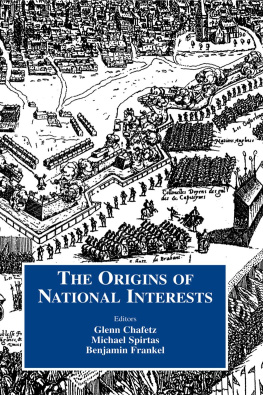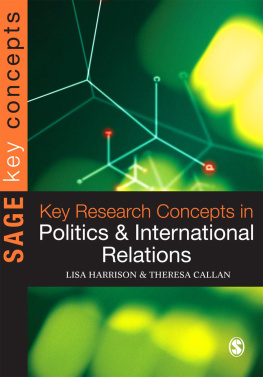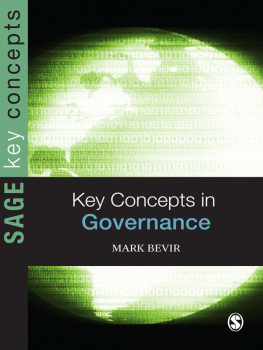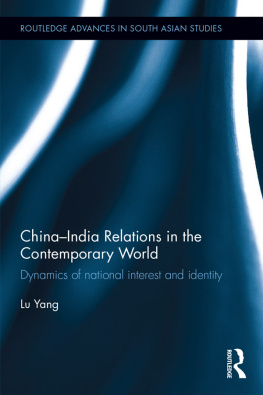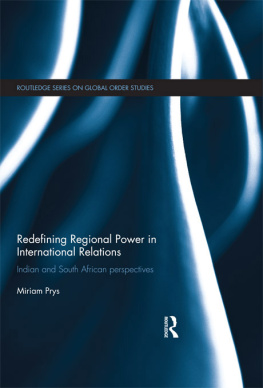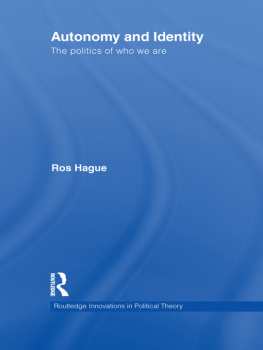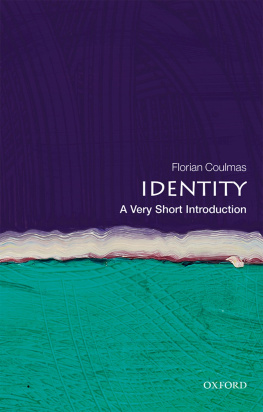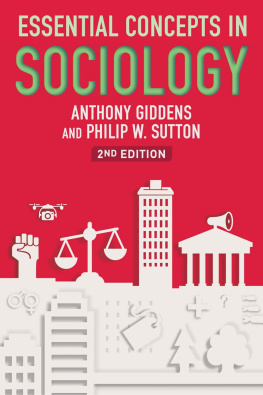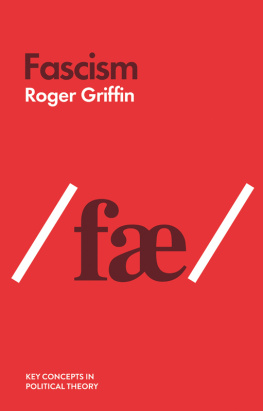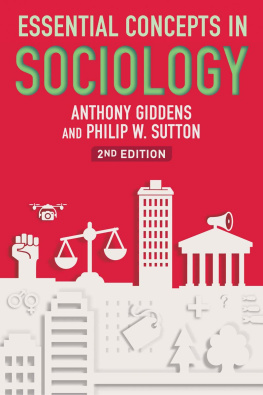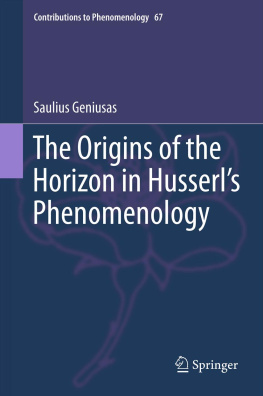T HE O RIGINS OF N ATIONAL I NTERESTS
C ASS S ERIES ON S ECURITY S TUDIES
ISSN 13632329
General Editor
Benjamin Frankel
This series explores both the traditional and emerging themes of international security, offering theoretical and historical examinations of the contexts, sources, causes, dynamics, uses, ramifications and outcomes of conflict and war.
The Origins of National Interests
edited by Glenn Chafetz, Michael Spirtas and Benjamin Frankel
Roots of Realism
edited by Benjamin Frankel
Realism: Restatements and Renewal
edited by Benjamin Frankel
First published in 1999 in Great Britain by
FRANK CASS PUBLISHERS
2 Park Square, Milton Park, Abingdon, Oxon, OX14 4RN
and in the United States of America by
FRANK CASS PUBLISHERS
270 Madison Ave,
New York NY 10016
Transferred to Digital Printing 2006
Website www.frankcass.com
Copyright 1999 Frank Cass & Co. Ltd.
British Library Cataloguing in Publication Data
The origins of national interests. (Cass series on security studies; v.3)
1. Nationalism Philosophy 2. Sovereignty Philosophy
3. Nationalism Cross-cultural studies 4. Sovereignty
Cross-cultural studies
I. Chafetz, Glenn II. Spirtas, Michael III. Frankel, Benjamin, 1949320.5401
ISBN 0 7146 4985 6 (cloth)
ISBN 0 7146 8048 6 (paper)
ISSN 1363 2329
Library of Congress Cataloging-in-Publication Data
The origins of national interests / edited by Glenn Chafetz,
Michael Spirtas, and Benjamin Frankel.
p. cm. (Cass series on security studies, 13632329)
Includes bibliographical references and index.
ISBN 0-7146-4985-6 (hard)
ISBN 0-7146-8048-6 (pbk.)
1. International relations. 2. Nationalism. 3. World politics. I.
Chafetz, Glenn R. II. Spirtas, Michael. III. Frankel, Benjamin, 1949- IV. Series.
| JZ1316.075 1999 |
| 327.1-dc21 | 9938155 |
| CIP |
This group of studies first appeared in a special issue of Security Studies ( ISSN 0963 6412), Vol.8, No.2/3 (Winter 1998/99-Spring, 1999) published by Frank Cass and Co. Ltd.
All rights reserved. No part of this publication may be reproduced, stored in or introduced into a retrieval system, or transmitted, in any form or by any means, electronic, mechanical, photocopying, recording or otherwise, without the prior written permission of the publisher of this book.
The cover illustration depicts the arrival of the Duke of Anjou before Antwerp in 1582, from Nederlandsche Historieprenten (15551900), edited by C.Van Rijn and G.W. Kernkamp, published by S.L. Van Loov, 1910
I NTRODUCTION : T RACING THE I NFLUENCE
OF I DENTITY ON F OREIGN P OLICY
G LENN C HAFETZ , M ICHAEL S PIRTAS , AND B ENJAMIN F RANKEL
T he concept of identity has gained increasing currency in international relations scholarship. Two flaws, however, have so far hobbled identity scholarship. First, it offers too many vague and imprecise definitionswhich means that it offers noneof the concept that stands at its very core; second, most of this scholarship does not go much beyond the mere assertion that identity is important, and that, somehow, in one way or another, it plays a role in how states define and pursue their national interests. These flaws have allowed critics to argue that the identity school offered little that was startling or new; that international relations scholars had already taken account of the fact that ideas mattered in shaping and implementing policy; and that norms and institutions offered explanations similar to those drawn from identity, but without relying on vague terms and causal links which were vaguer yet.
Before we can determine whether the appeal to identity is helpful in understanding state behavior, we should correct these debilitating flaws. First, we should offer clear definitions of identity and the concepts surrounding the term; second, we should demonstrate, in a clear and precise way which can be tested, the causal link between identity and the behavior of states.
The authors whose articles are gathered in this volume have taken up this challenge. In doing so, they have assumed the risks that attend new work: their conceptualization of the concept of identity and the manner in which they operationalize it may be questioned, or they may be proven wrong on empirical grounds. These risks, however, are necessary if identity is to become a useful social-scientific concept and if it is to make a meaningful contribution to our understanding of politics among nations. Some of the authors differ over conceptualizing identity, but we, the editors, borrowing from common usage, have chosen to define identity as the state of being similar to some actors and different from others in a particular circumstance. Identity involves the creation of boundaries that separate self and other. The process of boundary creation has significant consequences for many disciplines, and world politics is no exception.
W HAT IS I DENTITY IN THE C ONTEXT OF I NTERNATIONAL P OLITICS?
T HE APPROACH we (the editors, but not all of the authors in the volume) take is essentially a psychological one. Definitions within psychology vary, but most hold that each actor possesses a self-concept that is made up of discrete category or chosen group memberships (including political affiliation, religion, nationality, and ideology). The actor represents each category membership as a social identity. The identity is a mental construct that both describes and prescribes how the actor should think, feel, evaluate, and, ultimately, behave in group-relevant situations.
Cognitively, identities help individuals cope with complex, demanding situations. Identities are self-schemas, mental representations that allow individuals to overcome the inherent deficits in short-term memory and other information-processing capacity by organizing an otherwise overwhelming amount of incoming stimuli into categories based on prior experience.
Identity is not strictly cognitive, however. The cognitive function is accompanied by evaluative and emotional functions that operate simultaneously. At the same time that actors perceive and make predictions about themselves based on social stimuli, identities evaluate what these stimuli imply about the actors worth and provide emotional input.
In addition to the psychological components, identities comprise social and nonsocial elements. They are social because individuals share identities, or identify with others, in groups. Because individuals belong to multiple groups, identity is not unitary. Multiple groups mean multiple identities, as Bruce Cronin and Rodney Bruce Hall show. Accordingly, positive group identification makes Gascons, Normans, and Corsicans into French (in certain social settings); positive group identification also makes the United States, Italy, France, Germany, and others into an entity often called the West. Negative identification made Czechoslovakia into the Czech Republic and Slovakia, and threatens the integrity of Canada, Russia, and Great Britain.


